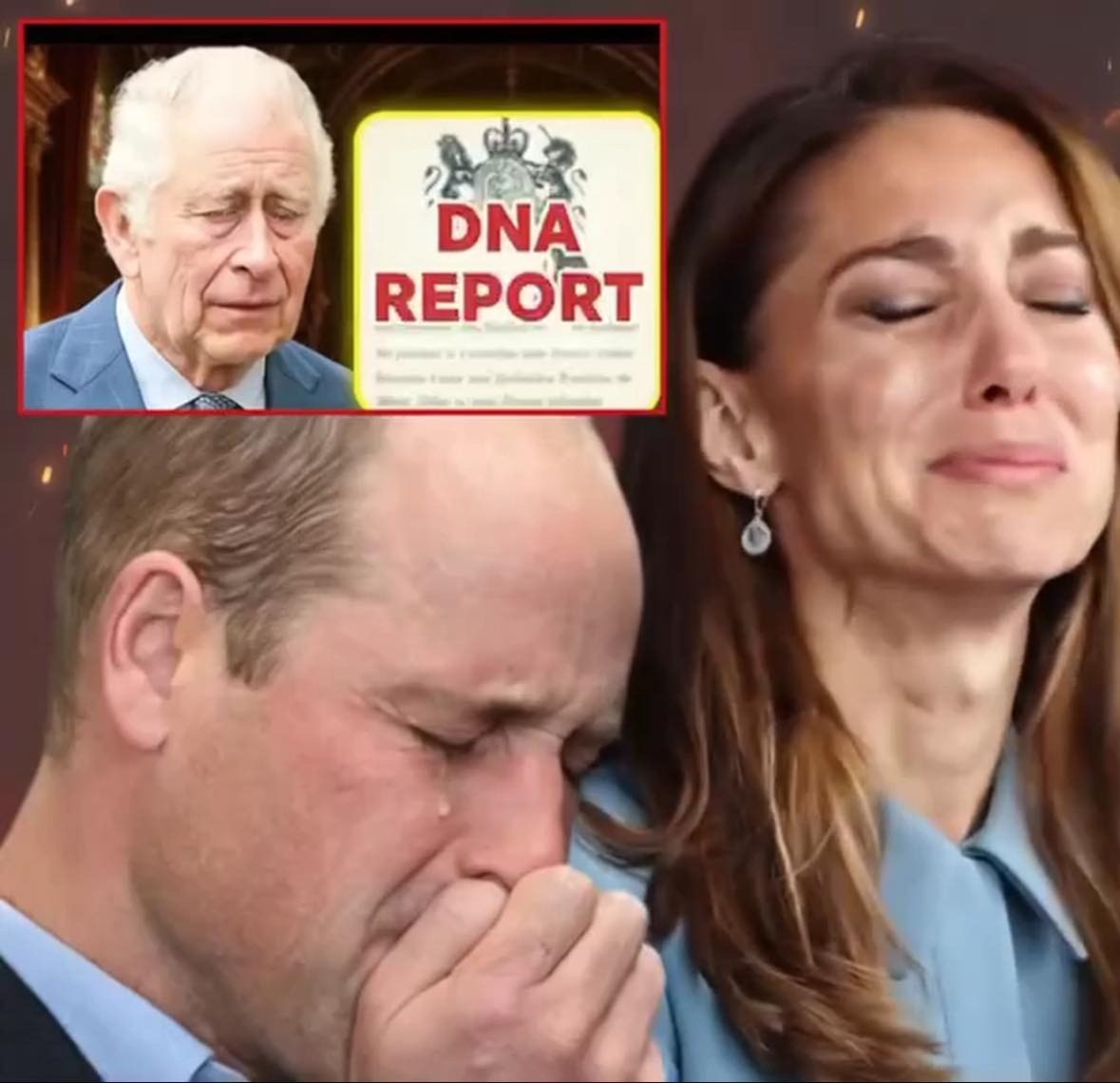The world seemed to pause when Prince Harry stepped in front of the cameras, his expression solemn, his voice quivering, his eyes revealing a mix of exhaustion and pain. Rumors had been swirling relentlessly—talk of a royal split, alleged scandals, even outrageous DNA claims. But as the Duke of Sussex began speaking, it quickly became clear that the story wasn’t about divorce or betrayal. It was something far more personal: a candid window into the immense emotional toll and strain that life under constant public scrutiny has taken on him and Meghan Markle.
In his statement, Harry acknowledged the torrent of headlines and the endless chatter filling tabloids. “There have been countless stories about my family—some hurtful, many entirely false,” he said softly. “But what is real is that we’ve been struggling—not with each other, but with everything surrounding us.”
He did not announce a divorce. Instead, he revealed the profound emotional exhaustion both he and Meghan had endured, navigating relentless media pressure, online harassment, and the complexities of raising children under an unforgiving spotlight. As for the DNA rumors, he clarified they were completely unfounded. “My children are my heart,” he said firmly. “No rumor, no story, no test can ever take that away.”
The statement was raw, deeply human, and heartfelt. For years, Harry and Meghan have existed at the intersection of fame, privacy, and relentless public fascination—adored by some, vilified by others. Since stepping back from royal duties in 2020, they’ve been building a life in the United States, balancing philanthropy, business endeavors, and family commitments. Yet, even across the ocean, the scrutiny has remained unyielding.
“Every word we speak becomes a headline,” Harry admitted. “Every photo becomes a narrative someone else crafts. It wears on you.”
Sources close to the couple say recent months had been particularly grueling. Between managing Archewell Foundation projects, defending themselves in media lawsuits, and navigating ongoing tensions with the royal family in the U.K., the couple has faced mounting pressure. “They’re not separating,” an insider explained. “They’re trying to heal—from constant judgment, attacks on their credibility, and the intrusion into their private lives.”
Harry’s words reflected that fatigue. He spoke openly about therapy, processing anger and grief, emotions tied to the loss of his mother, Princess Diana. “The world saw what that loss did to me as a boy,” he said. “I promised that as a husband and father, I’d protect my family at all costs. But sometimes, even when you do everything right, the world doesn’t allow it.”
He also described the impact of misinformation on Meghan, expressing how painful it is to see his wife vilified in ways reminiscent of his mother’s treatment. “When I watch her suffer because of lies, I feel that same helplessness I felt as a child,” he admitted. “It’s a wound that never truly heals.”
Though tabloids tried to frame his appearance as an “emotional breakdown,” those who watched closely saw something different—a man who has spent years striving to protect his peace finally revealing the weight of that struggle.
Despite speculation, Meghan and their children, Archie and Lilibet, were seen shortly afterward at their California home with Harry, appearing composed and united. Friends report that the couple spent the evening away from cameras, focusing on their children. “They’re together, but exhausted,” a friend noted. “The pressure they endure would break most people.”
Harry’s statement was not merely a response to false reports—it was a reflection on fame, family, and resilience. “People forget,” he said near the end, “we’re human. We love, we hurt, we make mistakes, and we keep trying to find our way forward.”
Observers highlighted that Harry’s tone was not angry but reflective and weary. He refrained from attacking anyone, even the British press, though his frustration was evident. Instead, he called for empathy—not just for himself, but for anyone whose life is treated as public property. “The more we consume gossip, the less we see the real people behind it,” he said. “We need to remember the cost of turning someone’s pain into entertainment.”
In the days following, reactions poured in from around the globe. Some praised Harry for his vulnerability, calling it “a necessary reminder of the human side of celebrity.” Others accused him of seeking attention or playing the victim. Yet even his harshest critics could not deny the depth and weight of his words.
Royal commentators suggest this may be a turning point for the couple. After years of being defined by headlines, Harry and Meghan appear intent on reclaiming control of their narrative. Insiders say they are considering taking a further step back from public life, focusing on charitable work, mental health advocacy, and raising their children away from the relentless gaze of cameras.
“They’re not walking away from each other,” a close friend emphasized. “They’re walking away from the noise.”
The DNA rumors, which fueled rampant speculation online, have been firmly debunked. According to Harry, the story was “manufactured cruelty”—a deliberate attempt to weaponize lies against his family. “It’s appalling,” he said. “There’s no limit to what people will do to destroy others for profit or clicks.”
He concluded with a quiet plea: “I know people will continue talking. But for anyone who truly cares—please stop feeding this machine. Let us live, let us love, and let our children grow up free from hate.”
As he left the podium, his eyes remained moist, yet there was a subtle flicker of calm—a sign of resilience amidst turmoil.
This was not a royal scandal, not a marital collapse. It was the voice of a man acknowledging the human cost of fame and the fragility of peace in a world unwilling to look away.
In the end, Harry’s message wasn’t about endings—it was about endurance. About the burden of being misunderstood, the pain of public judgment, and the quiet strength required to continue moving forward despite it all.
And amidst all speculation, that raw, imperfect truth may be the only story that truly matters.
